The Future of Music Education in a Digital World
29 November 2024
The world of music education has been gradually evolving, but in recent years, that evolution has taken a sharp turn into the digital space. With technology advancing at breakneck speed, the landscape of how we learn, teach, and experience music is rapidly changing, and the future looks more digital than ever. But what does this mean for students, educators, and musicians? How will technology shape the future of music education, and are we ready for it?
Well, hold onto your headphones, because we're about to dive into the future of music education in a digital world. Spoiler alert: It's going to be exciting, and maybe a little overwhelming too!
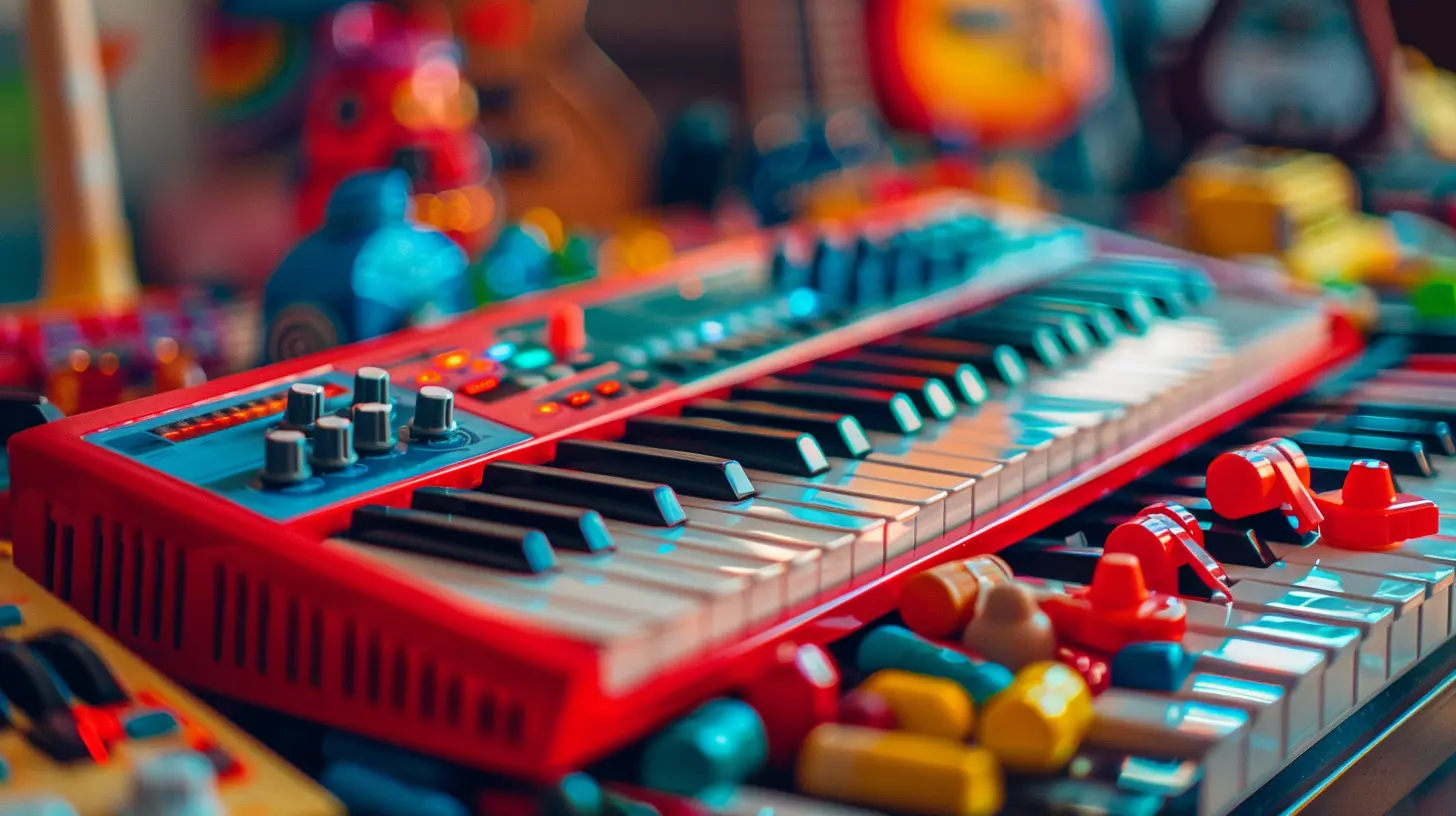
The Current State of Music Education
Before we delve into the future, let's get a snapshot of where we are now. Traditionally, music education has been a fairly hands-on affair. Think about it—students learning to play an instrument, sitting in front of a piano or holding a guitar, with a teacher guiding them through each note, chord, and rhythm. There’s something deeply personal about one-on-one instruction or being part of a choir or band.But then came the digital revolution. Over the past decade or so, online music lessons, apps, and digital tools have started to reshape how we approach learning music. Platforms like YouTube, Skillshare, and Coursera make learning accessible to anyone with an internet connection. You can learn piano from a YouTuber, get feedback on your singing from an AI-powered app, or even compose music using digital software without ever touching a physical instrument.
However, despite this shift, many still prefer traditional, in-person lessons. There's something about the human connection, the immediate feedback, and the ability to physically interact with an instrument that digital platforms haven’t fully replicated—yet.
So, where does that leave us? Is music education going to remain a blend of traditional and digital methods, or will technology completely take over? Let’s explore the potential future.
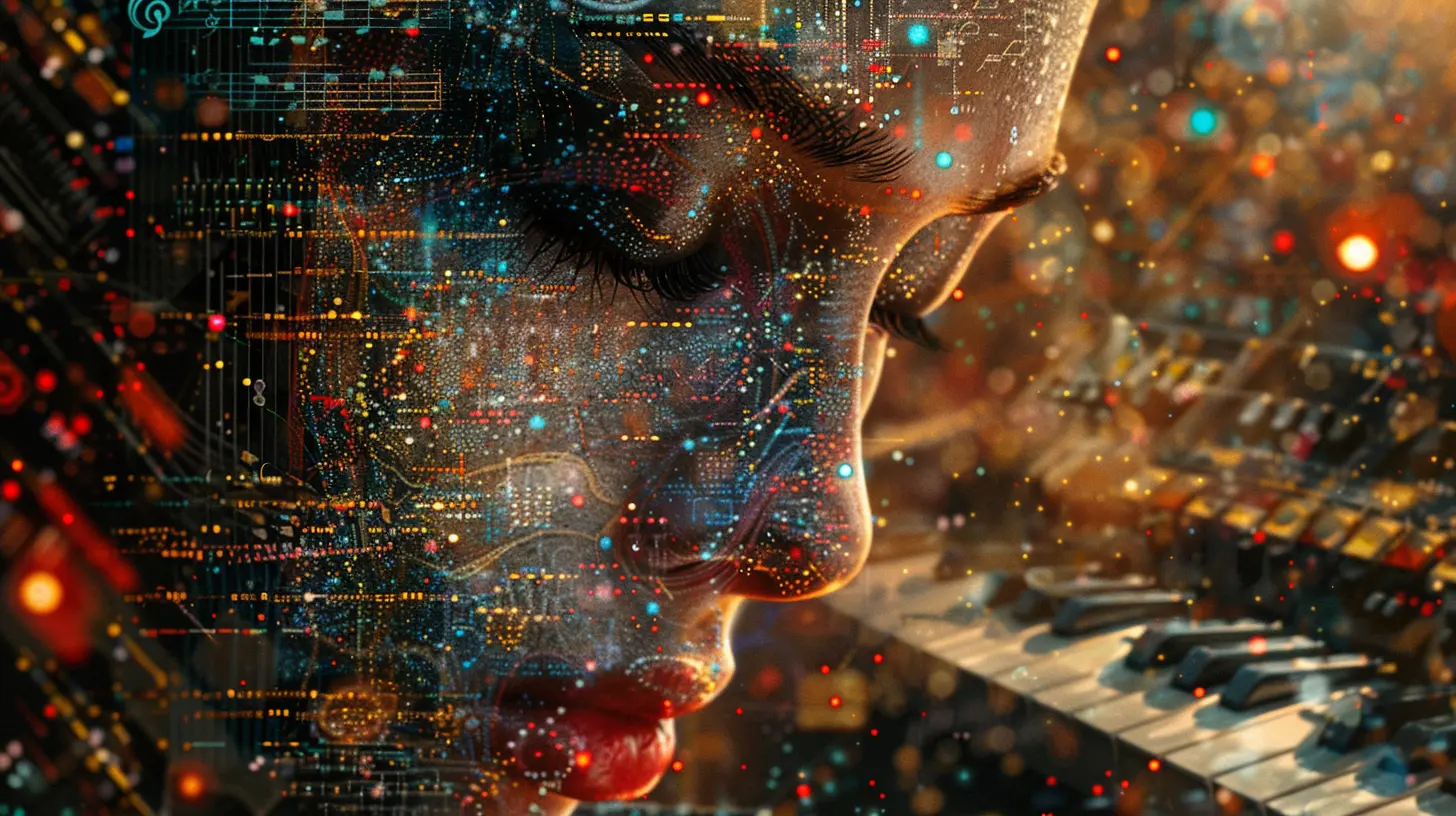
The Role of Technology in Music Education
1. Online Learning Platforms
The most obvious change we're already seeing in music education is the rise of online learning platforms. While they've been around for a while, the pandemic in 2020 pushed them into the spotlight. Suddenly, students and teachers all over the world were forced to transition to online lessons. It wasn’t ideal for everyone, but it showed us that learning music remotely was possible—and in some cases, even preferable.In the future, online platforms will become even more sophisticated. Imagine personalized learning paths that adjust to your pace, strengths, and weaknesses. AI tutors that can listen to your performance and give real-time feedback. Virtual classrooms where students can collaborate with musicians from around the world. The possibilities are staggering, and we’re just scratching the surface.
2. Artificial Intelligence (AI)
Artificial intelligence is already making waves in the music world, but its influence on education is just beginning. AI-powered apps like Yousician and Simply Piano analyze your playing and provide feedback—almost like having a teacher beside you.Looking forward, AI could revolutionize music education by offering hyper-personalized instruction. Imagine an AI that knows your learning style, understands your goals, and tailors every lesson to your needs. Struggling with chord transitions? It’ll give you exercises to fix that. Nailing a difficult piece? It’ll push you to the next level.
Beyond individual learning, AI could also assist teachers by automating administrative tasks, grading, and even composing lesson plans. This allows educators to focus more on teaching and less on paperwork.
3. Virtual Reality (VR) and Augmented Reality (AR)
Yes, virtual reality in music education sounds like something out of a sci-fi movie, but it's closer than you think. VR and AR could transform how we learn music by creating immersive environments where students can practice and perform.Imagine putting on a VR headset and suddenly finding yourself in a virtual concert hall, practicing your violin in front of a digital audience. Or using AR glasses that show you real-time visual cues as you learn to play a guitar solo. These technologies could make learning more engaging and interactive, especially for younger students who thrive on gamification and immersive experiences.
Virtual reality can also bring people together in ways that traditional methods can't. Students from different corners of the world could "meet" in a virtual space to collaborate on a song or practice as part of a digital orchestra. The possibilities for creativity and collaboration are endless.
4. Music Production Software
Music production software has been a game-changer for both amateur and professional musicians. Platforms like GarageBand, FL Studio, and Ableton Live allow anyone to create, mix, and produce music from the comfort of their own home.In the context of music education, this software opens up a whole new realm of learning. Students don’t just learn how to play an instrument; they can also learn how to compose, record, and produce their own music. This is particularly exciting for students who may not have access to traditional instruments or instruction but have a passion for music creation.
As technology advances, music production software will likely become even more intuitive and accessible, making it easier for students of all ages and skill levels to create professional-quality music.
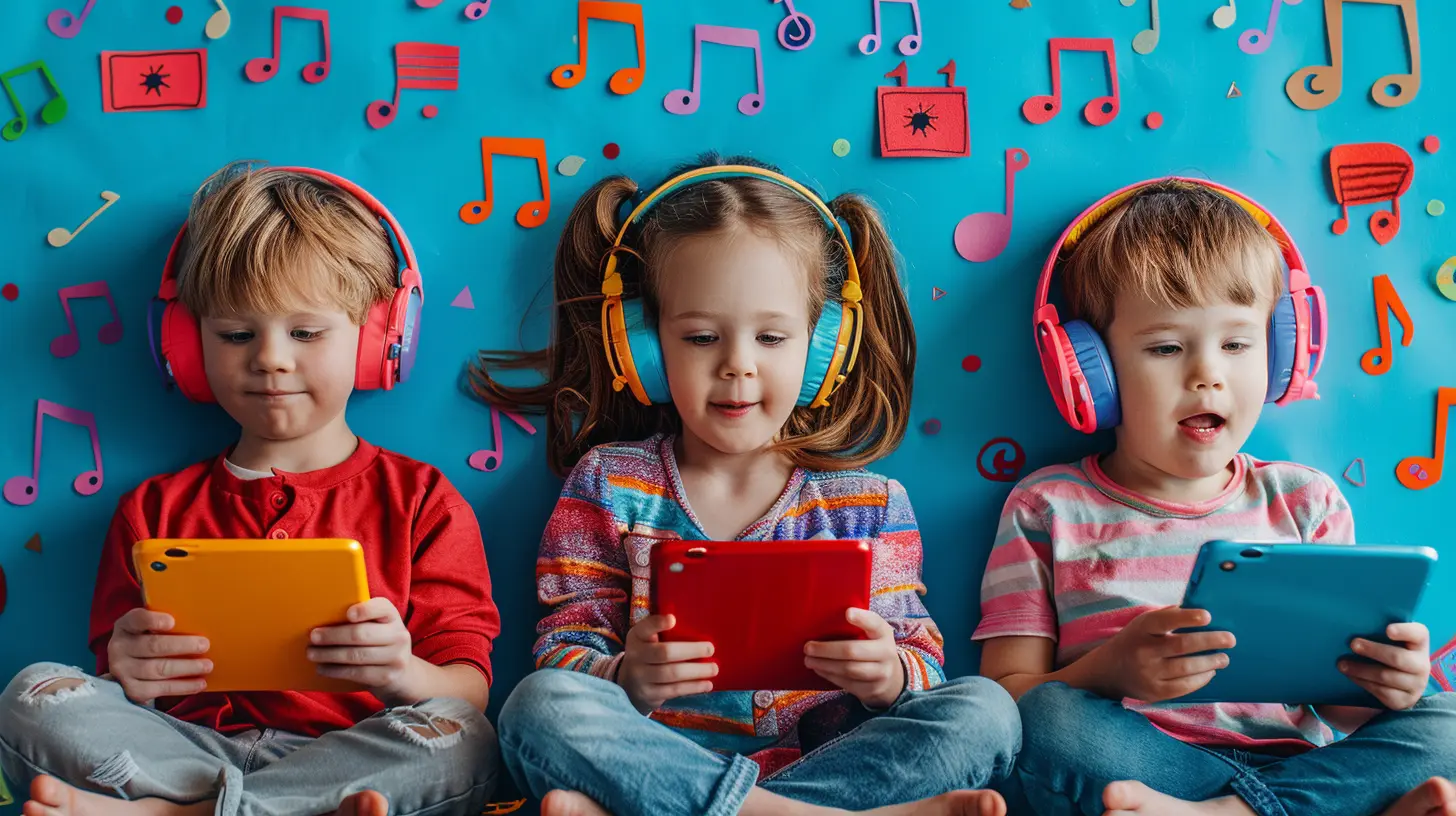
Benefits of Digital Music Education
Now that we’ve looked at the tech, let’s talk about the benefits. What’s so great about learning music in a digital world?1. Accessibility
One of the biggest advantages of digital music education is accessibility. Not everyone has access to a music school or private lessons, but with the internet, anyone with a laptop or smartphone can start learning. This opens up opportunities for students in remote areas, those with limited financial resources, or even individuals with disabilities who may find traditional learning methods challenging.2. Flexibility
Digital platforms offer flexibility that traditional lessons often can't. You can learn at your own pace, on your own schedule. Missed a class? No problem—just rewatch the video. Want to revisit a tricky section of the lesson? Pause, rewind, and replay until you get it right. This level of control over your learning process can help students feel less pressured and more empowered.3. Variety of Resources
The internet is a treasure trove of resources. From video tutorials to sheet music libraries, online communities, and forums, students have access to a wealth of information that would have been unimaginable just a few decades ago. Need help with a tricky chord progression? There’s a forum for that. Want to collaborate with other musicians? There’s an app for that too.4. Global Collaboration
The digital world breaks down geographical barriers. Students can now collaborate with musicians from all over the globe, sharing ideas, learning from each other, and even creating music together. This kind of global collaboration enriches the learning experience and exposes students to different musical styles, cultures, and traditions.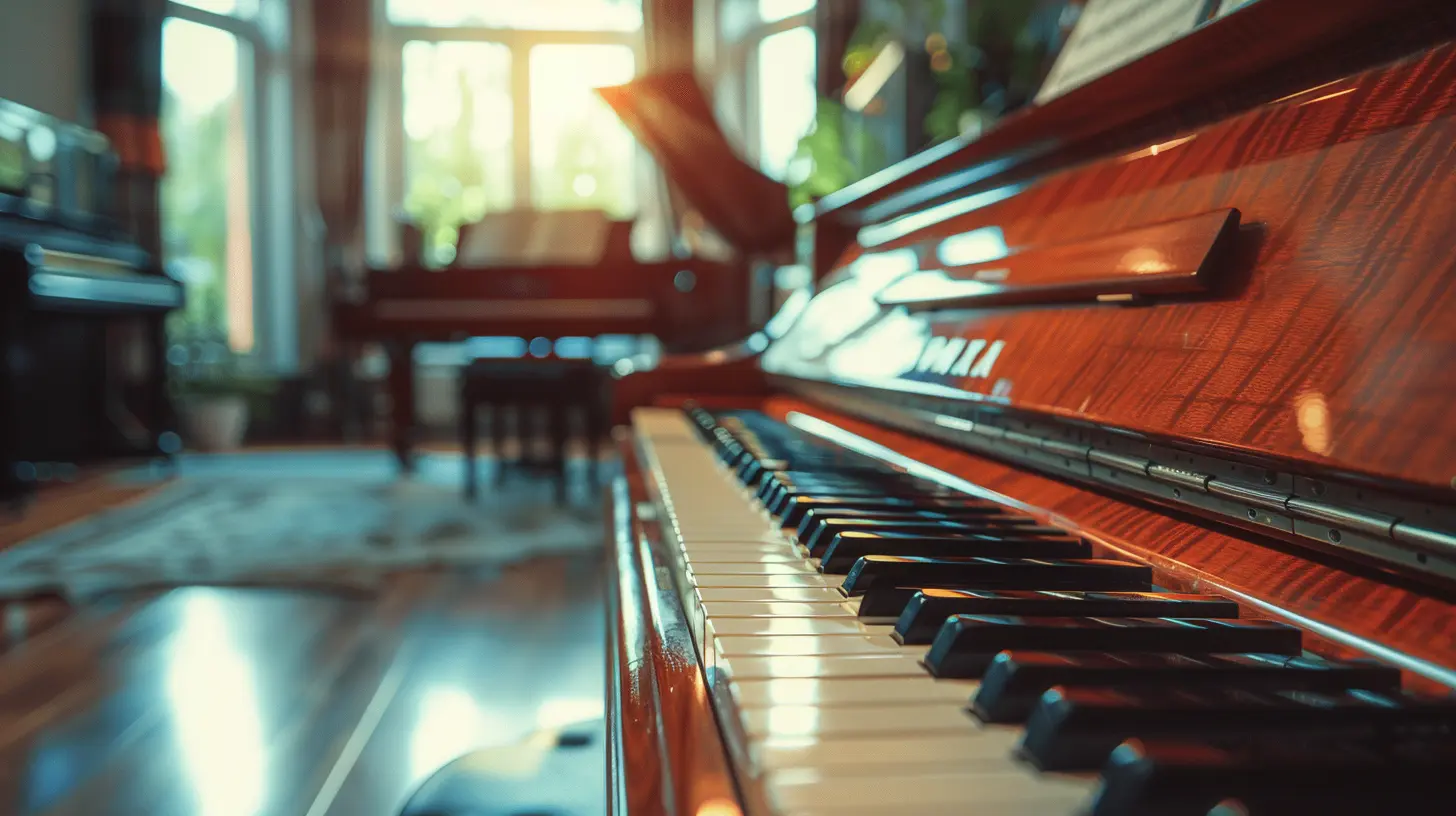
Challenges of Digital Music Education
Of course, it’s not all sunshine and rainbows. There are some challenges we need to address when it comes to digital music education.1. Lack of Physical Interaction
As we mentioned earlier, traditional music education has an irreplaceable human element. There’s something about the personal connection between teacher and student that’s hard to replicate online. In-person lessons allow for immediate feedback, hands-on corrections, and a deeper emotional connection, which can be lacking in digital platforms.2. Technical Limitations
Not everyone has access to high-speed internet, the latest gadgets, or advanced software. For some students, this can be a barrier to fully participating in digital music education. Additionally, the learning curve for some of these technologies can be steep, making it difficult for less tech-savvy students (and teachers) to keep up.3. Over-reliance on Technology
There’s a danger in becoming too reliant on technology. While apps and online platforms can be incredibly helpful, they can’t replace the intuition, creativity, and personal guidance that comes from a human teacher. Technology should be seen as a tool to enhance learning, not a replacement for the artistry and skill of traditional music education.The Future: A Hybrid Approach
So, what's the future of music education in this digital world? The answer likely lies in a hybrid approach—a combination of digital tools and traditional methods.As much as technology can enhance the learning experience, it probably won’t fully replace the value of in-person instruction. Instead, we’re likely to see a blend of the two. Students may take lessons with a human teacher but use apps and online platforms for practice. Schools may incorporate VR and AI into their curriculum, but still have choirs, bands, and orchestras for students to participate in.
The future of music education is about balance—using technology to make learning more accessible and engaging without losing the human touch that makes music such a deeply personal and expressive art form.
Conclusion
The future of music education in a digital world is both exciting and full of potential. Technology is opening doors that were previously unimaginable, making music education more accessible, flexible, and personalized. From AI tutors to virtual reality concert halls, the next few decades promise to reshape how we learn and experience music.However, it’s important to remember that technology is just a tool—it can enhance the learning experience, but it can’t replace the heart and soul of music education. At the end of the day, music is about human connection, expression, and creativity, and no digital platform can fully replicate that.
The key to the future of music education will be finding the right balance between embracing these new technologies and preserving the timeless, human aspects of learning music.
all images in this post were generated using AI tools
Category:
Music EducationAuthor:

Eva Barker
Discussion
rate this article
19 comments
Amira Elliott
Oh great, just what we need—more screens in music education! Because nothing says “soulful melody” like a virtual piano and an algorithm teaching rhythm. Can't wait for my son's AI-generated symphony. Who needs human connection when you have digital notes, right? Truly the soundtrack of our future! 🎶🙄
March 23, 2025 at 1:33 PM

Eva Barker
I appreciate your concerns! While technology can’t replace human connection, it can complement traditional teaching methods, offering new ways to engage and inspire creativity in music education.
Berenice Wilcox
Embracing technology in music education opens endless possibilities for creativity and collaboration. Let’s inspire the next generation of musicians to explore, innovate, and share their unique voices in this digital landscape!
February 27, 2025 at 10:02 PM

Eva Barker
Absolutely! Embracing technology in music education not only enhances creativity but also fosters collaboration, empowering the next generation to thrive in a digital landscape. Let's inspire and innovate together!
Cecilia Phelps
This article insightfully explores how digital tools and resources are transforming music education, enhancing accessibility, engagement, and creativity for students and teachers alike.
February 12, 2025 at 5:48 AM

Eva Barker
Thank you for your thoughtful comment! I'm glad you found the exploration of digital tools in music education insightful.
Zethryn Kim
This article insightfully highlights the transformative impact of digital tools on music education, emphasizing the importance of adaptability and innovation for educators and students alike.
February 1, 2025 at 12:47 PM

Eva Barker
Thank you for your thoughtful comment! I'm glad you found the insights on adaptability and innovation in music education valuable.
Blaze Jackson
Embrace technology to enhance creativity and accessibility in music education.
January 29, 2025 at 8:12 PM

Eva Barker
Absolutely! Technology not only broadens access to music education but also inspires innovative teaching methods, fostering creativity in students like never before.
Jillian McCune
This article thoughtfully explores the evolving landscape of music education in a digital age. It highlights the importance of embracing technology while maintaining the essence of traditional learning. As educators, we must find a balance that nurtures creativity and fosters collaboration, ensuring students thrive in this dynamic environment.
January 25, 2025 at 12:13 PM

Eva Barker
Thank you for your thoughtful comment! I completely agree that balancing technology with traditional methods is essential for fostering creativity and collaboration in music education.
Grace McKee
This article highlights crucial shifts in music education due to digital advancements. While technology offers exciting opportunities for engagement and access, it’s essential that we maintain a balance, ensuring that traditional skills and personal connections remain integral to the learning process.
January 20, 2025 at 5:42 AM

Eva Barker
Thank you for your insightful comment! I completely agree that while technology enhances music education, it's vital to preserve traditional skills and personal connections for a well-rounded learning experience.
Zeth Hubbard
This article insightfully highlights the opportunities and challenges of digital tools in music education. Embracing technology can enhance creativity, but educators must ensure foundational skills remain prioritized.
January 16, 2025 at 12:54 PM

Eva Barker
Thank you for your thoughtful comment! I completely agree that while digital tools can foster creativity, maintaining a strong foundation in music education is essential. Balancing both will be key to future success.
Celeste McLaury
Who knew music education would hit all the right notes in a digital world? With virtual choirs and AI composers, we might just trade our recorders for tablets! Just remember: if your kid starts composing symphonies in TikTok duets, don’t be alarmed—you're witnessing the future of music, one viral beat at a time!" 🎶
January 12, 2025 at 5:01 AM

Eva Barker
Absolutely! The evolution of music education through digital tools opens up exciting possibilities for creativity and collaboration. Embracing these changes prepares our children for the future of music in a connected world! 🎶
Camden McGill
This article sparks intriguing possibilities for music education in the digital age! I’m curious about how technology will reshape traditional methods and foster creativity. Will virtual platforms enhance collaboration among students globally? Excited to explore how these innovations can create a more inclusive and interactive learning experience in music education!
January 4, 2025 at 8:41 PM

Eva Barker
Thank you for your thoughtful comment! I share your excitement about how technology can revolutionize music education, fostering collaboration and inclusivity in new and creative ways. Let's embrace these innovations together!
Coral Diaz
Embrace technology, but prioritize creativity.
December 30, 2024 at 9:27 PM

Eva Barker
Absolutely! Balancing technology with creativity is essential for fostering innovative and engaged musicians in today’s digital landscape.
Kevin McClellan
This article insightfully explores the transformative impact of digital technology on music education. As we embrace online platforms and innovative tools, it’s crucial to balance traditional methods with new approaches, fostering creativity and accessibility for all learners. The future of music education is indeed bright and full of possibilities!
December 25, 2024 at 1:38 PM

Eva Barker
Thank you for your thoughtful comment! I completely agree that balancing traditional methods with digital innovation is key to enhancing music education. Exciting times lie ahead for learners everywhere!
Rocco Harris
This article beautifully captures the evolving landscape of music education. In a digital age, it’s inspiring to see how technology can enhance creativity and accessibility, ensuring that the joy of music continues to flourish for future generations. Thank you!
December 17, 2024 at 1:24 PM

Eva Barker
Thank you for your kind words! I’m glad you found the article inspiring and relevant to the future of music education.
Uri Jackson
This article offers valuable insights into how digital tools can enhance music education, but also highlights the importance of maintaining personal connections in learning.
December 14, 2024 at 12:55 PM

Eva Barker
Thank you for your feedback! I completely agree—balancing digital innovations with personal connections is key to enriching music education.
Pilar Henderson
What innovative tools will shape music education in the digital age? I'm eager to explore how technology can enhance creativity and accessibility for students!
December 11, 2024 at 4:55 AM

Eva Barker
Innovative tools like AI-driven composition software, virtual reality platforms for immersive learning, and collaborative online music creation apps will revolutionize music education by enhancing creativity and making learning accessible to all students.
Tobias Hamilton
The article offers valuable insights into the evolving landscape of music education. Embracing digital tools can enhance accessibility and creativity, preparing students for a dynamic future in the music industry. Great read!
December 1, 2024 at 7:56 PM

Eva Barker
Thank you for your thoughtful feedback! I'm glad you found the insights valuable and see the potential of digital tools in music education.
Rosanna McCaffrey
Embracing technology in music education fosters creativity and accessibility for all learners.
November 29, 2024 at 9:48 PM

Eva Barker
Thank you for highlighting the importance of technology in music education! It truly opens up new avenues for creativity and ensures that all students can engage with music in meaningful ways.
Russell Sawyer
This article insightfully highlights the transformative potential of technology in music education. Embracing digital tools not only enhances learning experiences but also prepares students for the evolving landscape of the music industry. Thank you for sharing!
November 29, 2024 at 11:29 AM

Eva Barker
Thank you for your thoughtful comment! I'm glad you found the insights on technology in music education valuable.
Alice Mullen
Loved this article! It’s exciting to see how technology is reshaping music education. Embracing digital tools and innovative approaches can truly enhance creativity and accessibility for students. Can’t wait to see what’s next!
November 29, 2024 at 5:36 AM

Eva Barker
Thank you! I'm glad you found it exciting. The future of music education is indeed bright with technology!
MORE POSTS

How Study Abroad Programs Foster Global Citizenship
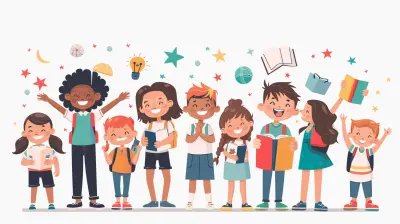
The Role of Extracurriculars in Building Self-Esteem and Confidence

Cultivating Independent Learners Through PBL
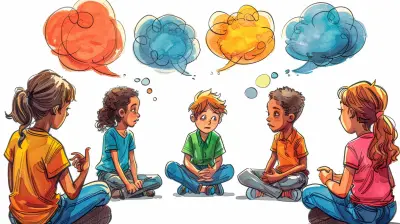
Encouraging Student Voice: Strategies for Inclusive Class Discussions

The Importance of Emotional Safety in Learning Environments

How to Use Extracurriculars to Build a Strong Personal Brand

Teaching Music to Students with Special Needs
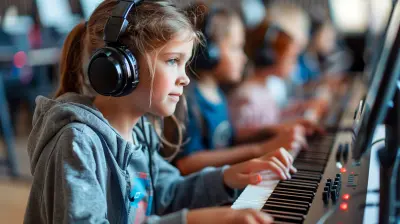
Integrating Technology into Music Classrooms

The Role of Critical Thinking in Standardized Test Performance

The Science Behind Memory and Retention in Learning

The Role of the Teacher in Facilitating PBL

Unlocking Student Potential: Proven Teaching Strategies for Every Classroom